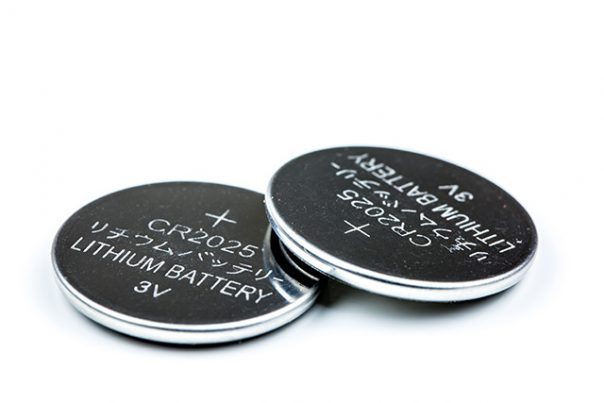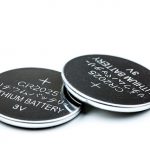
New supercapacitor could be an ideal alternative to lithium-ion batteries
Monday, September 03, 2018 by RJ Jhonson
http://www.realsciencenews.com/2018-09-03-new-supercapacitor-could-be-an-ideal-alternative-to-lithium-ion-batteries.html

A study published in Advanced Materials discusses the discovery of a new supercapacitor that features both stability and a high energy density, which, with further development, could be a potential alternative to lithium-ion batteries.
The supercapacitor was created by researchers from the University of California at Berkeley (UC Berkeley) in collaboration with the Molecular Foundry, a nanoscience research facility funded by the Department of Energy.
The new supercapacitor is a huge leap from earlier versions of the technology, featuring the highest energy density among similar capacitors. It also has three times the voltage operating window of its predecessors. It can also be charged and discharged repeatedly, which suggests it may be able to compete with lithium-ion batteries in the future.
A supercapacitor stores more electricity than normal capacitors. A standard capacitor builds up charges on its surface, allowing it to store energy in the process. This is opposed to so-called pseudocapacitors, where the charge is stored during electron transfers in redox reactions. The latter is more similar to batteries than the former.
Capacitors typically have a higher power density than regular batteries, which means they can provide more power given their volume compared to the latter. They also have fairly long operation lifetimes. However, they have a lower energy density than batteries, which means they can store less energy given their volume. Pseudocapacitors can store more energy than regular capacitors, but they have a narrow electrochemical voltage window, the voltage range where the capacitor’s electrodes remain stable.
The supercapacitor created by UC Berkeley researchers uses titanium disulfide, a material notable for its light weight, cheap costs, and many potential uses in a lithium-based energy storage system. The material’s main drawback is its poor conductivity.
Previous research has shown that coating vertically aligned carbon nanotubes (VACNTs) with nanocrystalline titanium disulfide can result in a pseudocapacitor with improved electrical conductivity, a wider surface area, and more stable electrochemical reactions. Such a pseudocapacitor could only be made using a process that was highly toxic and had problems with contamination and uniform coverage.
To build the supercapacitor, the researchers collaborated with the Molecular Foundry. They employed a two-step process that combined atomic layer deposition (ALD) and chemical vapor deposition (CVD), two processes that use vapors to coat materials with very thin films. This hybrid process created VACNT electrodes that featured impressive power and energy densities. Furthermore, the hybrid supercapacitor was notably stable and was less prone to short circuits and self-discharging.
The researchers believe that the process they employed would be used to create next-generation energy storage systems.
Is this goodbye to lithium-ion?
Lithium-ion (Li-ion) batteries are used in many modern devices because of their many advantages. Apart from their ability to store a lot of energy, they are very low-maintenance and can be modified to suit many types of devices. They also have very low self-discharge rates, which means that unlike nickel-cadmium (Ni-Cad) cells, they don’t lose their power over time when not in use.
However, they have several disadvantages that are leading researchers to look into other portable energy sources. First, they tend to be sensitive to both overcharging and over-discharging. The manufacturers of devices that carry Li-ion batteries remedy this problem by installing protective software, among other measures, that protect the power cells from either extreme. Second, Li-ion batteries can be used for only a particular number of charging and discharging cycles. That it’s costlier to make than, say, Ni-Cad batteries isn’t helping its case either. (Related: Praise for the proton: Latest battery breakthrough may free us from lithium ion.)
And yet it cannot be denied that Li-ion cells are among the most reliable batteries in the market today. Their scalability makes them ideal for both portable and very small devices, while their high energy density and minimal self-discharge rates contribute to their popularity as storage for solar power. Li-ion, among other lithium-based batteries, is also helping the drive toward cleaner air by becoming the power source of choice for many electric vehicles. It has been around for years, but it is still considered a work in progress, with scientists looking for ways to improve its performance and correct its misgivings.
Visit Power.news and learn more about the latest breakthroughs in energy storage technologies.
Sources include:
Tagged Under: Tags: battery, breakthrough, capacitor, carbon nanotubes, Chemistry, energy, energy density, future science, future tech, lithium-ion cell, nickel-cadmium cell, power, power density, pseudocapacitor, research, supercapacitor, titanium sulfide





